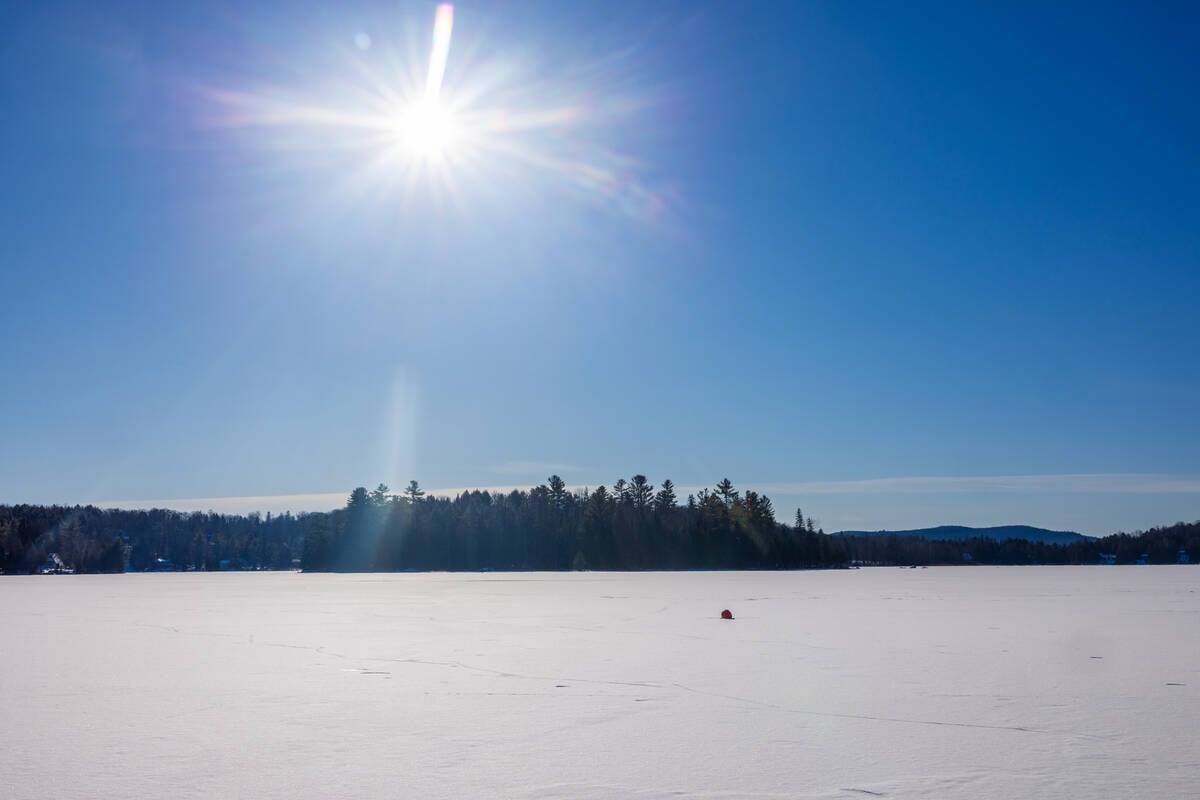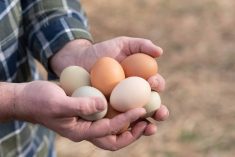As I sit down to write this column in late October, my thoughts turn to the month ahead. I usually enjoy November, as it is the time I plan the winter issues of Grainews. As you are winding down your busy production period, we’re beginning ours. It’s good to take a step back and reflect upon the past year as we embark upon planning for the new one.
It’s also the month for other remembrances. When I was growing up, it was important to observe, honour and respect those individuals who served in wartime on Remembrance Day. In primary school, we’d file into the gym, a few hundred children, our poppies pinned proudly to our shirts. We would’ve spent a couple of weeks learning or relearning In Flanders Fields by John McCrae, ready to recite en masse at the school assembly.
For many years when I was young, my paternal grandfather, Noel Simpson, was the president of the Royal Canadian Legion in our town. Going to the community cenotaph to watch wreaths being laid on Remembrance Day seemed important and solemn to me. All of these commemorations early in life sparked an interest in the stories and history of the world wars, particularly those of my family.
Read Also

Health hazards are often overlooked risks on the farm
While quite different from the dangers posed by farm machinery, hazards such as loud noise or sun exposure require the same proactive attention, the Canadian Agricultural Safety Association says.
During the Second World War, my grandfather served in the U.K.’s Royal Air Force as a radar operator. While training in London, at night he was placed on emergency duty to help people caught in the Blitz — the German bomb attacks on London and other strategic cities. After training ended, he was stationed on an island in the Hebrides (off of the west coast of Scotland). The radar stations there monitored and helped protect Allied conveys from attacks by German U-boats. The stations were also on the lookout for incoming low-flying German aircraft. It’s hard to imagine what that must’ve been like from my place of relative ease, safety and comfort in 2022.

My paternal grandmother, Joan, who was 13 at the start of the war, was one of the children evacuated from London. Called Operation Pied Piper, which began in the summer of 1939, the program evacuated millions of children from areas of perceived danger in England to the countryside, where it was deemed safer. Joan and her younger brother, David, were sent to Devon to escape the Blitz. Although it kept some children safe, it also created long-term trauma for others. My grandmother talked to me often about the war and being an evacuee.
And it was not just my grandparents who were affected. Recently, my father, Ian Simpson, told me when he was a child, there were remnants of the war all around them in Greenford, which is a suburb in the London Borough of Ealing in west London. He was born three years after the war ended. He says he remembers going to the butcher’s shop with his grandmother with the ration book, where a butcher would take their ration coupons depending on how much meat they bought. He also told me about how he and his friends would ride their bikes around the surrounding fields looking for old gun shells and bomb parts in the early 1950s.
What has all of this got to do with agriculture? The agricultural efforts by farmers in Canada during the First and Second World Wars were vital. Canadian farms provided critical sources of food to nations with unprecedented food shortages while often dealing with labour crises at home as farm workers volunteered to join the military or were conscripted. My grandparents were the recipients of those efforts in the U.K. during the Second World War.
While farmers’ contributions were crucial to winning both the First and Second World Wars, those efforts are often not commemorated like others, which is why it is so important to share those stories, your stories.
Already family histories from the First World War are being forgotten and those of the Second World War are fading. How better to understand where we’re going than examining where we’ve been? How better to connect with other people than sharing our stories, especially our collective stories like those surrounding Remembrance Day?
Our stories are the ties that bind as a family, a community, a country and a planet. Take time out to share your stories with your family and loved ones this November. And if you’d like to share how your farm was affected by, or the contributions made by your family’s farm to, the First and Second World Wars with the Grainews community, please send your submissions to me at [email protected]. We’d like to feature some of your reminiscences on page 4 in the future.
Be well,
Kari















